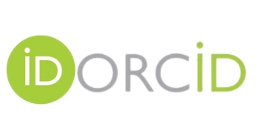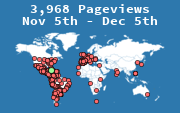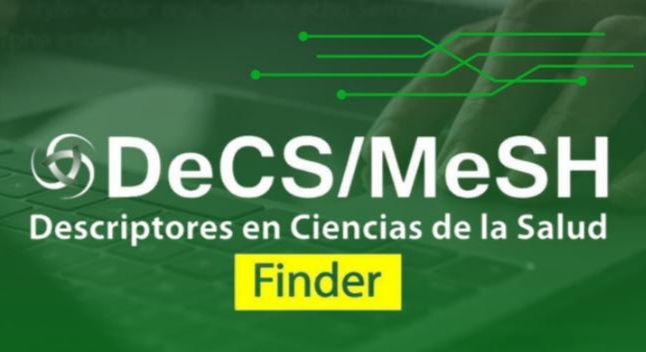Satisfaction level of the online ccourse ¨Fetal origin of adult diseases¨
Keywords:
disease prevention, education, distance, learning, Primary Health CareAbstract
Introduction:
Distance education in virtual mode guarantees reflective, critical, self-taught, innovative and asynchronous learning.
Objective:
To determine the overall satisfaction rate of the online course ¨Fetal Origin of Adult Diseases´.
Methods:
A descriptive, cross-sectional, observational epidemiological design investigation was carried out. From a population of 523 students studied, the sample was made up of 309 participants who agreed to answer the designed virtual questionnaire. The Iadov methodology was applied to study the level of satisfaction.
Results:
Within the academic valences, 79.3 % of the students showed teaching status, 58 % had master's degrees in science. 71.5 % did not have scientific category. The overall satisfaction rate of the course was high, 0.97, justified by the 94.8 % of those who had a satisfactory perception of the experience. Connectivity was the component with the lowest satisfaction rate of 0.71. Although the course dealt with a topic with a biochemical and genetic basis, it was complex, 98.7% stated that it was pertinent to address it in the context of prevention strategies in Primary Health Care.
Conclusions:
The use of digital platforms and applications such as WhatsApp allows us to transform and create virtual learning environments that favor collaborative work, in turn stimulating interest in novel, complex and little-known topics to develop preventive work in Primary Care. of health.
Downloads
References
Ministerio de Educación Superior. Reglamento de la Educación de Posgrado de la República de Cuba. Resolución 140/2019 (GOC-2019-776-O65); 2019 [citado 14 Sep 2023]. Disponible en: https://cuba.vlex.com/vid/resolucion-no-140-19-810750577
Lardoeyt Ferrer R, Calixto Robert Y, Torres Sánchez Y, Taboada Lugo N, Lardoeyt Ferrer M, et al. Entorno virtual de aprendizaje de Genética Médica en tiempos de la COVID-19 en la Facultad de medicina Finlay-Albarrán. RCIM [Internet]. 2021 [citado 14 Jun 2023];13(2),1-14. Disponible en: http://scielo.sld.cu/scielo.php?script=sci_arttext&pid=S1684-18592021000200012&lng=es
LUDUS. Los 5 Entornos Virtuales de Aprendizaje (EVA) más populares[Internet]. 2023 [citado 23 Sep 2023]. Disponible en: https://www.ludusglobal.com/blog/5-entornos-virtuales-de-aprendizaje-eva
Fainholc B. El ZOOM y la educación. DIM: Didáctica, Innovación y Multimedia. 2021[citado 28 Oct 2023];39. Disponible en: https://raco.cat/index.php/DIM/article/view/388779
Kaieski N, Andre-Grings J, Alexandra-Fetter S. Um estudo sobre as possibilidades pedagógicas de utilização do Whatsapp. Rev Novas Tecnologias na Educação, Porto Alegre[Internet]. 2015[citado 23 Sep 2023];13(2):1-10. Disponible en:
https://seer.ufrgs.br/index.php/renote/article/view/61411/36314
ETECSA [Internet]. 2023 [citado 23/09/2023]. Disponible en: https://www.etecsa.cu/es/noticias/alcanzamos-7-millones-lineas-moviles-activas
Morales-Peralta E, Álvarez-Fornaris MA, Lardoeyt-Ferrer R. Estrategia didáctica para incrementar el conocimiento del método clínico en genética. Sal Cienc Tec. 2022[citado 23 Sep 2023]; 2:55. Disponible en: DOI: https://doi.org/10.56294/saludcyt202255
Lardoeyt-Ferrer R, Herrera-Masó JR. Índice de satisfacción de profesionales con la formación científica metodológica en una institución académica de Cuba. Rev Española Educ Méd. 2023 [citado 29 Sep 2023]; 4(1). doI: https://doi.org/10.6018/edumed.559701
López RA, González MV. La Técnica de Iadov. Una aplicación para el estudio de la satisfacción de los alumnos por las clases de educación física. Rev Digital [Internet]. 2002 [citado 29 Sep 2023];8. Disponible en: http://www.efdeportes.com/
Terrones-Ayán JA. E-learning en Educación Médica de Postgrado. Nuevo paradigma en actualización y capacitación. Universidad Nacional de La Plata. Facultad de Ciencias Médicas. Tesis de doctorado. 2020 [citado 29 Sep 2023]. Disponible en: DOI: https://doi.org/10.35537/10915/110446
Rodríguez-Sotomayor Y, Pardo-Fernández A, Lorié LE, Legrá-López H, Torres-Silot O. WhatsApp como herramienta para la educación de posgrado a distancia en tiempos de COVID-19. EDUMECENTRO [Internet]. 2022 [citado 26 Mar 2024]; 14: 2089. Disponible en: http://scielo.sld.cu/scielo.php?script=sci_arttext&pid=S2077-28742022000100100&lng=es
Martínez-Rodríguez D, Díaz-Crespo G. WhatsApp como espacio académico de la Educación Superior en Cuba. Mendive Rev de Educ [Internet]. 2021[citado 26 Mar 2024]; 19(3),732–42. Disponible en: https://mendive.upr.edu.cu/index.php/MendiveUPR/article/view/2183
Coleman E, O’Connor E. The role of WhatsApp® in medical education; a scoping review and instructional design model. BMC Medical Education. 2019 [citado 12 Oct 2023];19:279.DOI: https://doi.org/10.1186/s12909-019-1706-8
Ramírez MS, García FJ. La integración efectiva del dispositivo móvil en la educación y en el aprendizaje. Rev Iberoamericana de Educación a Distancia[Internet]. 2017 [citado 18 Ago 2023];20(2):29-47. Disponible en: https://www.redalyc.org/pdf/3314/331453132002.pdf
Calzadilla I, Ricardo J. Tutoría de tesis de pregrado desde WhatsApp, asunción necesaria que deja COVID-19. ARCIC[Internet]. 2020 [citado 22 Ago 2023];9(24). Disponible en: http://scielo.sld.cu/scielo.php?script=sci_arttext&pid=S2411-99702020000300107
Hinojosa A. WhatsApp para la educación. Observatorio de Innovación Educativa[Internet]. 2019 [citado 22 Ago 2023]. Disponible en: https://observatorio.tec.mx
Alarcón R. Universidad innovadora por un desarrollo humano sostenible: mirando al 2030. Conferencia inaugural del X Congreso Internacional de Educación Superior Universidad 2016, Ministerio de Educación Superior, La Habana. 2016.
Fernández-Capote MM, Trujillo C, Ernesto L, Fernández-Queija Y, Hernández-Cuétara L. Desafíos y alternativas de la Universidad de Ciencias Médicas Cubana. Rev Méd Electrón[Internet]. 2018 [citado 30 Ago 2023];40(6):[aprox. 21 p.] Disponible en: http://scielo.sld.cu/pdf/rme/v40n6/1684-1824-rme40-06-1983.pdf
Published
How to Cite
Issue
Section
License
Copyright (c) 2024 Daniel Quintana Hernández, Roberto Lardoeyt Ferrer , Ana Duadys Pérez Álvarez , Yanisbell Fajardo Peña

This work is licensed under a Creative Commons Attribution 4.0 International License.















 This site is licensed under a
This site is licensed under a